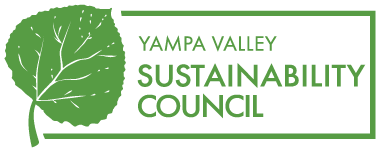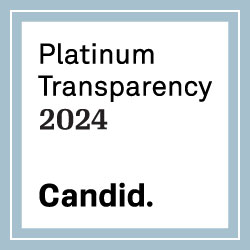OCTOBER 10, 2018 BY
Article adapted from Steamboat Pilot & Today
STEAMBOAT SPRINGS — In the Yampa Valley, most of the waste that ends up in landfills can be recycled.
In a recent study of waste diversion in Northwest Colorado, volunteers picked through residential and commercial garbage bins and sorted items. The study found that 77.5 percent of the waste that is landfilled could be recycled or composted.
“We have a huge opportunity here locally to use our local infrastructure and work as a region to work together to divert this waste,” said Cameron Hawkins, the Yampa Valley Sustainability Council’s waste diversion director, at a Routt County Commissioner’s meeting.
Even at the state level, Coloradans are not recycling as much as they could be. According to the Colorado Public Interest Research Group, an independent thinktank, Colorado recycles only 12 percent of its waste, less than half of the national rate of 34 percent.
For the first time this year, the Colorado Department of Public Health and Environment set statewide waste diversion goals aimed at increasing recycling and composting rates in Colorado.
Routt County will soon have its own goals, as the Yampa Valley Sustainability Council plans to complete a waste diversion strategic plan by the end of the year. The Routt County Board of Commissioners also granted the Sustainability Council $22,000 to develop the plan and implement waste diversion programs.
“It’s something each one of us can do every day in every aspect of our life, so recycling isn’t just that thing we do at home,” said Kate Bailey, director of Eco-Cycle Solutions, an organization aimed at creating zero waste. Bailey has also helped develop the plan.
“It can also be, ‘how can I start recycling in my business?’” she said. “’How can I help my kids’ school? How can I recycle more at events? How can I help my church move away from disposable plates?’ We each have this sphere of influence in the places we go, and how can we help spread recycling throughout the community, because it does take all of us working together.”
The Sustainability Council presented an abbreviated draft of the plan to the Routt County commissioners at the meeting Tuesday. Members of the Sustainability Council will present the plan to Steamboat Springs City Council at it’s Oct. 16 meeting.
The plan is still in development, but the group developing the plan has identified the following six priority work areas:
- Curbside recycling: Increase access to curbside recycling in rural Routt County and at businesses and multi-family homes.
- Composting: Provide composting options for neighborhoods and the largest producers of organic waste.
- Businesses: Increase access and availability to recycle and educate businesses about waste reduction.
- Construction materials: Develop infrastructure to divert waste from construction projects.
- Drop-off: Develop a convenient recycling drop off for hard to recycle materials.
- Education: Educate the community to increase recycling and ensure people know what can be recycled.
The plan is intended to be a document that guides steps toward diverting waste from landfills. The final plan is expected to be complete by the end of the year. Once it is complete, the Sustainability Council hopes the city of Steamboat Springs and Routt County will adopt it.
Then, working groups will work toward specific solutions to meet the goals outlined in the plan’s priority work areas. As these working groups learn more, the plan will be adapted to make it relevant to new goals and planned action, Hawkins said.
“For now, it’s to set the stage for work that’s going to be done and give us some idea of what the community values,” she said. She added that community buy-in is the most important element of the plan.
The Sustainability Council plans to lead meetings with 20 community stakeholders, including municipalities, Twentymile Mine and Hayden Station, other businesses and community members.
One area that has emerged as a community priority is increasing the amount of food and other organic waste to be composted.
“That’s something that’s come up consistently is how do we get our food waste out of the landfill,” Hawkins said. “That’s a huge opportunity to really make an impact locally.”
The plan also hopes to identify and expand programs that have proven successful, such as the Green Machine, a recycling drop-off container placed once a month in Oak Creek and Yampa.
The Sustainability Council will take community feedback about waste diversion after it’s Talking Green event from 6:30 to 8 p.m. Wednesday in Library Hall in Bud Werner Memorial Library. The event will focus on how reducing waste can reduce climate pollution.
The presentation will be available at yvsc.org/wastediversion. The public can also submit comments about waste diversion at yvsc.org/wastediversionstrategicplan.
IF YOU GO
What: Boston to Brazil: Fighting climate change through waste reduction
When: 6:30 to 8 p.m. Wednesday, Oct. 10
Where: Library Hall in Bud Werner Memorial Library, 1289 Lincoln Ave.
Reducing waste is one of the fastest, easiest and most cost-effective local actions we can take to reduce climate pollution, according to Eco-Cycle’s Kate Bailey. Communities in places like Boston, Brazil, Trinidad and Tobago, Nepal, Wyoming, Nebraska, Montana and Italy, are working to reduce their greenhouse gas emissions by implementing Zero Waste infrastructure, policies and programs. After the presentation, the Yampa Valley Sustainability Council will accept community feedback on waste diversion, which will be used to develop a waste diversion strategic plan.
To reach Eleanor Hasenbeck, call 970-871-4210, email ehasenbeck@SteamboatPilot.com or follow her on Twitter @elHasenbeck.






